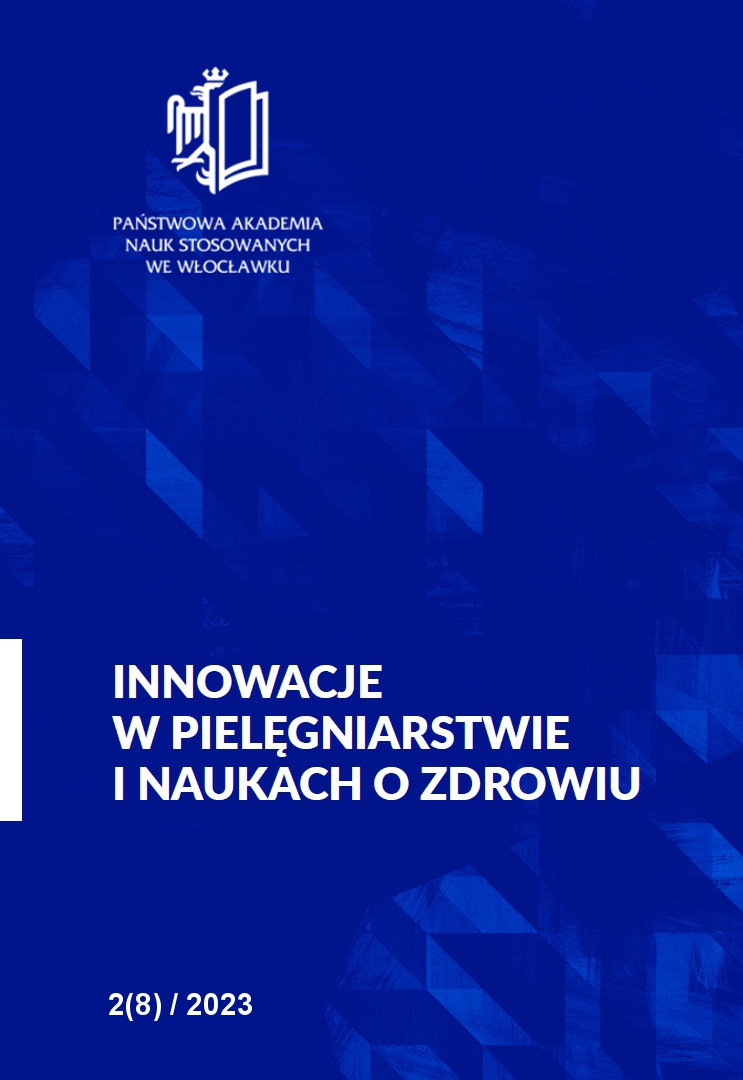Vaccination rates and parental attitudes newborns and infants, and anxiety during the pandemic
DOI:
https://doi.org/10.21784/IwP.2023.010Keywords
protective vaccinations, COVID–19 pandemic, fear of diseases, newborns, infantsAbstract
Admission. Vaccinations are the most effective form of preventing infectious diseases. The number of people vaccinated affects the effectiveness of vaccination. A steady increase in the number of people not having their children vaccinated due to the limitation of collective protection. It is important to educate the public on the need to implement the vaccination schedule.
Aim. The aim of the study was to analyse the level of vaccination coverage and attitudes of parents of newborns and infants, as well as the level of stress experienced during the pandemic in the study group.
Material and methods. In the own research, the analysis of medical records, the diagnostic survey method using the author's own questionnaire and the estimation method using the mini-COPE questionnaire were used. 100 people took part in the study. The degree of statisticality p < 0.05 was assumed in the calculations.
Results. Our own research shows that 99% of the respondents had their children vaccinated. The decision to vaccinate the child was mainly influenced by the fear of the child getting sick and the milder course of the disease after vaccination, while the respondents obtained information about vaccinations mainly from the medical staff. Most of the respondents believe that it is reasonable that the preventive vaccination program is obligatory. Some of the respondents are afraid of adverse post-vaccination reactions. Most of the respondents believe that the coronavirus pandemic did not affect their decision regarding the need to carry out preventive vaccinations. Education remained in a statistically significant, medium correlation with the results of the question whether the SARS-CoV-2 coronavirus caused your approach to vaccinations to change, and in a low correlation with the results of the question What is your opinion on the need to appear with your child for protective vaccinations during the SARS-CoV-2 virus pandemic, the largest number of women with primary/lower secondary education indicated that they were afraid of contact with the SARS-CoV-2 virus during a visit to carry out protective vaccinations. The phenomenon of the pandemic had a significant impact on the level of perceived stress in the surveyed group of parents – a higher average of perceived anxiety was recorded during the pandemic than before its occurrence.
Conclusions. Most of the respondents are positive about the need to implement preventive vaccinations, and the pandemic did not have a significant impact on the need to implement them. Respondents both before and during the pandemic still consider vaccination to be justified. The pandemic phenomenon has affected the level of perceived stress. A much higher average of experienced anxiety was recorded during the pandemic - 5.82 points, with the average - 3.04 points in the pre-pandemic period.
References
Martyn J. Postawy rodziców wobec Programu Szczepień Ochronnych. Kolegium Nauk Medycznych. Uniwersytet Rzeszowski 2023.
Czarkowski M.P, Staszewska – Jakubik P., Wielgosz U. Szczepienia ochronne w Polsce w 2021 roku. Narodowy Instytut Zdrowia Publicznego. 2022:1–7,91–96.
Szalonka A. Społeczne uwarunkowania szczepień w Polsce w świetle badań ankietowych. [w:]Nowak W., Szalonka K. (red.) Zdrowie i styl życia. Determinanty długości życia. Uniwersytet Wrocławski, Wrocław 2020:389–404.
Pająk A., Królak – Olejnik B., Mazela J., Murawska E. Czynniki wpływające na utrzymanie wysokiego poziomu wyszczepialności niemowląt. Standardy Medyczne/ Pediatria. 2019;(16):246-252.
Pieszka M., Waksmańska W., Woś H. Wiedza rodziców do drugiego roku życia na temat szczepień ochronnych. Medycyna Ogólna i Nauki o Zdrowiu. 2016;22(3):221-226.
Cecot N., Stalmirska S. Wpływ pandemii COVID – 19 na realizację kalendarza szczepień. Innowacje w Pielęgniarstwie i Naukach o Zdrowiu. 2022;7(1):7–24.
Bernatowska E., Grzesiowski P. (Red.), Szczepienia ochronne obowiązkowe i zalecane od A do Z. Wydawnictwo Lekarskie PZWL, Warszawa 2021;11-16, 95-100.
Downloads
Published
How to Cite
Issue
Section
License

This work is licensed under a Creative Commons Attribution-NonCommercial-NoDerivatives 4.0 International License.
Stats
Number of views and downloads: 527
Number of citations: 0
